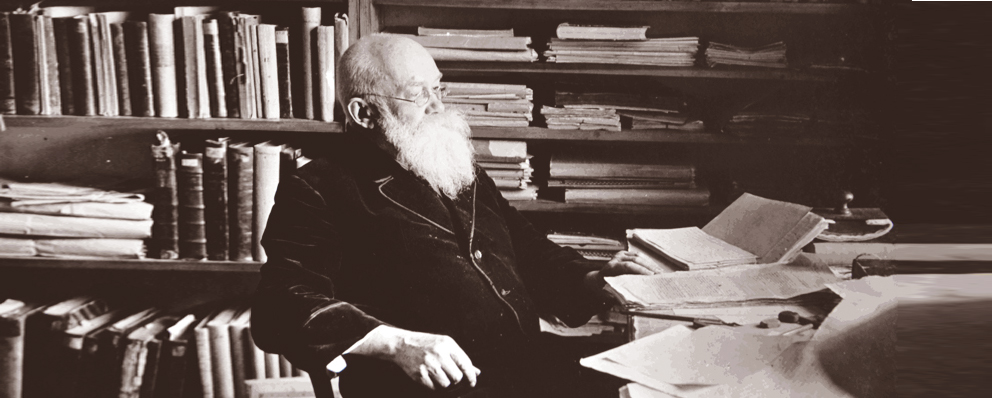Raffensperger Christian Full interview with Christian Raffensperger on History of Ukraine-Rus' – Volume 2. The Eleventh to Thirteenth Centuries, Mykhailo Hrushevsky : Wittenberg University, Springfield, Ohio, USA, 4 December 2020 / C. Raffensperger.
Partial transcript – 0:01 Hrushevsky Translation Project was a massive project that lasted 20 years (and is now complete) – 0:50 Involvement with the project, Harvard Ukrainian Research Institute – 1:43 Hrushevsky wanted to connect Ukraine-Rus' with modern Ukrainian history of the 20th century. He wrote a history of medieval (Middle Ages) Rus' that integrates Rus' into the larger medieval Europe. Vasily Klyuchevsky – 2:48 Hrushevsky challenged the idea that Rus' was part of Russian history, e.g. Rus' to Vladimir-Suzdal to Moscow to modern Russia – 3:11 Serhii Plokhy wrote about the reception of Hrushevsky's scholarship by Russian studies scholars who did not care for Hrushevsky. A small number of scholars were interested. Volume One was translated in German and had an impact – 4:16 Hrushevsky was brilliant. He read primary sources, read sources in Greek, Latin and Old Norse. Hrushevsky read all medieval sources. Startled by the volume of material of Rus' in the primary sources in Latin that never enters scholarship of Rus' which is largely a Russian studies field of scholarship. Hrushevsky accomplished work 100 years ago that I thought I was innovating today (bibliographic ignorance). His narrative of Rus' remains one of the best sources of medieval Rus' history today – 5:23 Volodymyr Svyatoslavych (Volodymyr the Great), Yaroslav, Iziaslav, Poland, Papacy, family conferences to bring Rus' back together – 6:20 Hrushevsky presents a much more complex but more accurate depiction of the traditional narrative of Kyivan Rus' history which is a Russian narrative – 6:35 Reign of Yaroslav I the Wise (Яросла́в Му́дрий) is seen as the golden age of Rus' – 7:07 Description of the process of editing Hrushevsky: proofs, translators, and translation peculiarities. One issue is that the word князь should be translated as "king" not "prince". The word for "Governor" versus "mayor", etc. – 9:00 Discoveries editing Hrushevsky: The amount of detail of the medieval world Hrushevsky examines is extraordinary – 10:12 The translation of Hrushevsky is wonderful because the impact of his scholarship can now be felt in a wider world. Russian historians largely ignore Hrushevsky, do not know how to engage historiography issues. Hrushevsky was a much better scholar – 11:32 The in-depth nature of Hrushevsky's scholarship puts him above and beyond many Russian scholars of similar periods. The whole history of Eastern Europe needs to be re-written. Serhii Plokhy "Unmaking Imperial Russia" is disruptive – 12:22 If Hrushevsky's narrative was translated more widely 100 years ago, we would have a very different version of historiography of Eastern Europe today. Scholars are inherently conservative because they rely on precedent, citing other authors and established evidence – 13:25 Limitations of Hrushevsky's work – 15:37 Further description of working on the Hrushevsky Translation Project. – 16:35 Question: Why wasn't Hrushevsky's work translated into English earlier? Answer: Those who need Hrushevsky will read him – 17:05 Hrushevsky mined each source in detail, e.g. the relationship between the Hungarians, Poles and Halych is intricate, this a complicated period in the 13th century. Hrushevsky is very clear who these actors are as individuals, their roles, motivations, etc., they were fully formed identities - – 18:30 Changes in the 11th century, new churches built in Kyiv and Novgorod, ecclesiastical centres and ecclesiastical writings from Constantinople and Bulgaria – 19:02 Law codes grow and change, i.e. Rus'kaya Pravda or Rus' Justice (Руська Правда) of Yaroslav, e.g. property law, people. Yaroslav's sons expands the law, formation of a nascent bureaucracy. Growth Kyiv as a city, much change in the 11th century. – 20:40 Changes in court, introduction of women from different places. Polish princess Gertrude / Gertrude of Poland (Гертруда Польська (Олена, Олісава)) and her entourage – 21:07 Changes in illumination styles and manuscripts (Ілюмінований рукопис) that use Western styles – 21:36 Hrushevsky's scholarship should be read. This not a vanity project, not a pro-Ukraine project. This is a project to bring a really interesting scholarly work into the 21st century and anglophone world. A divide remains remains between Russian studies in Russian and Russian studies in English. | 
